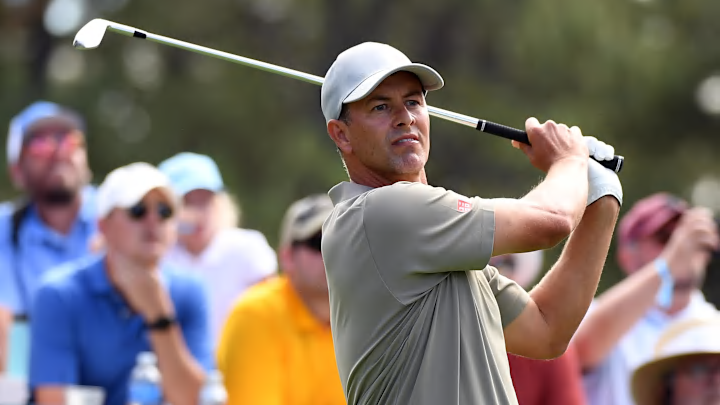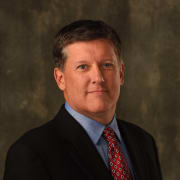While Forging an Identity, the International Team Will Try to End a Long Presidents Cup Losing Streak

MONTREAL — Among the many struggles faced by the International team as it relates to its plight in the Presidents Cup is forging an identity.
Unlike at the Ryder Cup, where European golfers can bond by playing for their continent against an American team, International golfers come from varying places around the world.
MORE: Day 1 pairings for Royal Montreal
For example, this year’s team that will face the Americans beginning Thursday at Royal Montreal has three players from the host country of Canada, three from Australia, four from South Korea and one each from South Africa and Japan.
They play for pride and for each other. But who else?
They don’t even really have a tour to play for, as is the case in Europe where players take great pride in supporting the DP World Tour and the importance it places on the Ryder Cup.
The Presidents Cup is a PGA Tour event, hence all the players fall under that banner.
“As an identity, to have our own identity and have our own say in the championship, in the matches is very important to us,” said Ernie Els, the 2019 International captain and assistant to captain Mike Weir this week. “That's why we wanted to have kind of our own flag, so to speak, to play for and have an identity.
“I've spoken with commissioner (Jay) Monahan before I started, and all these ideas came about, and they supported us fully, which is great. So the PGA Tour supports where we're going with our team and our identity and so forth.
“A lot of our players are so young that they only remember the shield. They don't really remember what happened before that. So at least we got something started there.”
Els was referencing the International team shield that now adorns the player uniforms and caps and was first introduced during his captaincy at Royal Melbourne five years ago.
It was a way for the International side to separate itself from the PGA Tour, something to distinguish itself. While other aspects have been slow to materialize—attempts to reduce the number of matches came grudgingly, for example—the shield is viewed as a step toward putting the players in a better position to succeed.
The International side also sought to have its own qualification system, and received concessions that include six captain’s picks.
And it’s been a tough process. Els played on eight International Presidents Cup teams and the only winning side in 1998. He was also part of the epic tie in South Africa in 2003 when the match ended with him and Tiger Woods playing three sudden-death holes to a draw before the competition was called.
Els’s team was highly competitive in Melbourne, jumping out to an early lead and holding a two-point advantage heading into Sunday singles before the U.S. ultimately prevailed.
Trevor Immelman attempted to build on what Els did when he was the International captain two years ago in Charlotte, the Americans’ ninth straight win.
“A bunch of us just decided that it was time to put some extra work in,” Immelman said. “We don't have the luxury of the Ryder Cup in the other year, and we had a lot of ground to make up.
“Ernie was willing, from the time he was named captain in 2018 or so, to really start putting in the extra time and trying to figure out ways that we could improve and take control of this team and start to understand all the people we represent, the billions of people we represent around the world, understand the cultures we represent.
“How can we best cater to our team, to our players, to all of our fans, and really, like I said, put in the extra time to be able to try and give these guys a run for their money at some point.”
Els was the first to dive hard into analytics, trying to find better pairings and matchups, a plan that paid off at Royal Melbourne when the International side raced to a 4–1 lead after the Thursday foursomes. That has traditionally been a horrendous format for the Internationals, who have seen the Americans go 57½ to 23½ since 2007.
The International team has made a far better showing in home matches, the entire competition coming down to the last hole in 2015 and holding a four-point lead through three of the five sessions five years ago.
Getting off to a strong start Thursday would help.
“I think we are putting forward our strongest team for quite a while,” said Adam Scott, who is playing in his 11th consecutive Presidents Cup at age 44. “I think things have been moving in a positive direction for our team since Ernie took over as captain.
“There's been a lot of talk about the shield. But that is something, and it's becoming bigger and bigger, and there are guys like Min Woo (Lee) on this team who basically his golf life has been aiming to play for the International shield. Our team effort and dynamic has changed so much. The captains, the program the captains have put into place for us, they are kind of teeing everything up for us.
“I think a couple years ago was a tough, tough spot for us at Quail Hollow. A few guys who may have been on our team weren't there, and the last few years, we've rebuilt and we've put together a formidable team.
“I think playing the United States is never easy, whether you're the Internationals or Europe, but we can take inspiration from what Europe has managed to do with general on paper being the underdogs.
“We are determined to go out there this year and change the script of this event. Certainly I want to improve my record in this event, and I'm very determined. I don't know how many more opportunities I'll get, if any. So this is a big week for me, but I have a lot of belief in this team. I can't remember feeling so comfortable coming into a Presidents Cup.”
